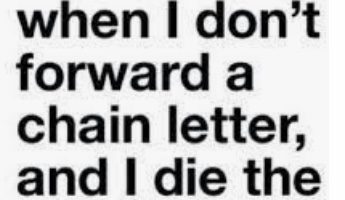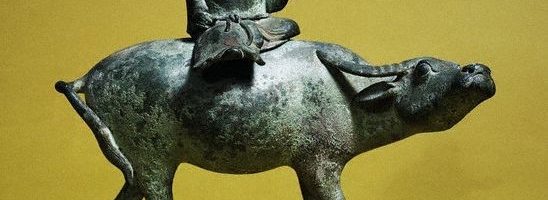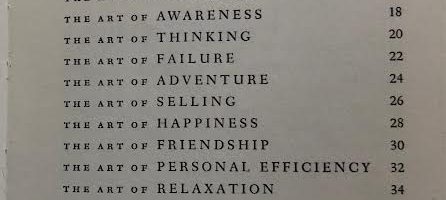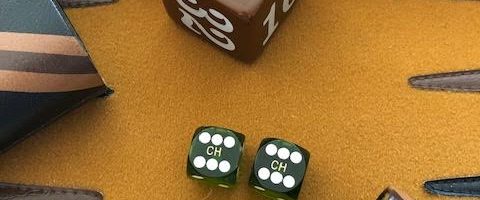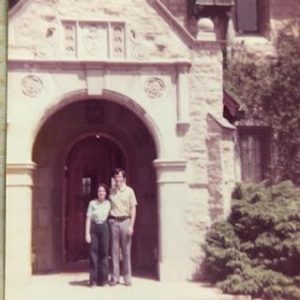My parents had very different attitudes towards gratitude; at least that was my perception as I grew up, after we moved from Detroit to the suburbs in 1963 and my mother’s mental health issues surfaced. She was a “glass half empty” sort of person. Nothing ever pleased her or made her happy.
Despite all sorts of financial and emotional set-backs experienced by my father, he wasn’t a complainer. He always had a smile for you, a kind word, a sympathetic ear. Never a sharp tongue.
With those two examples laid out before me, I tried to follow my father’s path. Long before the “self-help” movement, he read Norman Vincent Peale’s “The Power of Positive Thinking”, but the book he bequeathed me was “The Art of Living” (Table of Contents seen as Featured photo). He tried to live by those rules and be grateful for the goodness that was in his life, rather than the negative.
I may not always succeed in the “not complaining” department; I know that I’ve led a life of privilege and for that I am extremely grateful. We came through COVID unharmed. We watched a lot of TV, I did my exercise classes via Zoom, got together with friends and family via technology.
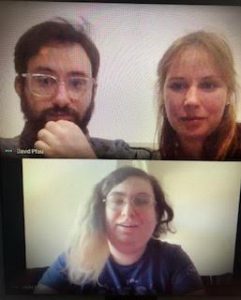
video chat with kids, last year
The country booted a delusional, charlatan out of office. Whether we can keep our fragile democracy or will succumb to the poisonous lies he perpetuates remains to be seen.
But I am most grateful, over this past year, for family and health. As the vaccination roll-out began, Dan and I rushed to get ours and I truly teared up as I walked into Fenway Park for my first Pfizer shot. I felt like the end of the darkness was near (little did I know that it would become a ridiculous, ginned-up wedge issue which will keep this country from reaching herd immunity and potentially allow mutations to thrive, not to mention continue to cause needless death and suffering). I did not see Delta on the horizon, not know that we would again need to mask indoors, but that is a minor inconvenience compared to health and safety.
Though Dan prefers to hide rather than celebrate milestones, I insisted on making a big deal of his 70th birthday on May 25th, taking close friends out to a lovely restaurant for dinner (there was still a limit to six people per gathering, so I could only invite those two couples), then had them back to our home for singing and birthday cake. We all enjoyed the evening.
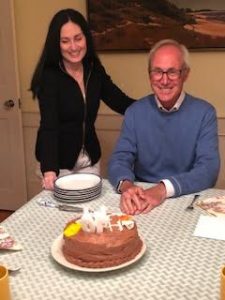
Dan’s 70th birthday – May 25th, 2021
In June, our London children arrived to receive their second Pfizer shot (in the UK, it was given three months apart, rather three weeks apart). We got to spend lots of wonderful time with them despite it being work time, not vacation for them, and Anna did not feel well during much of her pregnancy. But it was a joy just to have dinner with them each night.
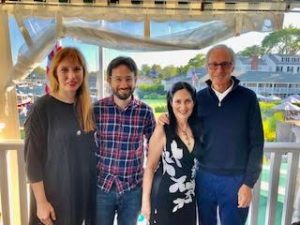
Father’s Day, 6/20/21
They continued on to visit her 95 year old grandmother in Atlanta (though London, born and bred, Anna’s mother is American, which gives her dual-citizenship and got her into the country when foreign restrictions were still in place in June). David got to meet Grandma Shirlee (she approved of David) and they had a wonderful visit with Anna’s American relatives. It was good timing, as Anna’s grandmother slipped away shortly after the kids returned to London. At least she got to meet David and know of her future great grandchild.
We attended two COVID-delayed family weddings over the summer, one – my nephew’s in Cincinnati in June, the other – Dan’s nephew in Overland Park, KS in September. It was so nice to see both sides of the family, first time in a long time. Unfortunately, I am still dealing with the sprained ankle and broken heel bone suffered while boarding the riverboat on the Ohio River in late June. I just don’t heal as quickly as I once did, and didn’t realize how seriously I’d injured myself. Besides, six days later catastrophe struck.
On July 1, while the kids were visiting friends in New York City, Dan collapsed on his way to the bathroom. (We still don’t know the exact cause, but believe it was due to vasovagal syncope; a sudden drop of blood pressure when standing quickly. He had devastating injuries and was airlifted off Martha’s Vineyard to Massachusetts General Hospital. Our doctor called me that night (I ferried off the Vineyard the next morning). Though he fractured his C1 vertebra, tore a vertibral artery that brings blood to his brain and broke the occipital bone at the base of his skull (in addition to the five inch gash on his forehead), he was lucky there was no neurological damage. We count our blessings. Breaking that vertebra (called the “Atlas” since it holds up his head), could have resulted in paralysis. We spent three weeks back in Newton, seeing doctors and having tests. He was in tremendous pain (and even now, almost five months later, still experiences an ache when turning his neck). Yet, as a glass-half-full person, at least we got to see our kids again, as they came back to Newton before their flight to London. That was not planned.
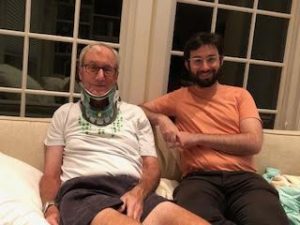
July 10, 2021, 10 days after Dan’s accident. The day David and Anna returned to London.
The remainder of the summer was quiet, but at least we could go to dinner with friends and stream a lot of movies. After two weeks, Dan was allowed to remove his cervical collar, which caused his skin to be irritated, limited what he could eat (he couldn’t open his mouth very wide) and interfered with sleep. For the next three months, he only needed to wear it when in the car, or if he could be jostled. Now he is done with it altogether. More gratitude. He slowly took up walking (he likes to be active) and David gave him a ship model as a 70th birthday present, so he works on that.
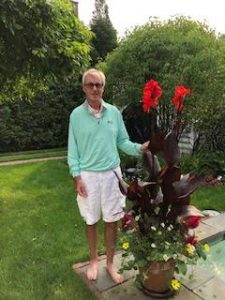
Dan recovering from accident, late Aug, 2021
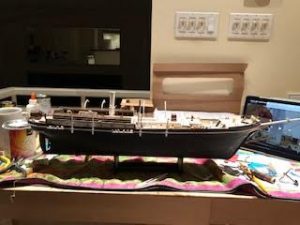
Endurance model in progress
Vicki never liked the ethos of Silicon Valley and decided she had more friends in the Seattle area. On her own, she found an apartment in Bothell, arranged her own move, had help from a good friend from Seattle, who came into San Jose, helped her pack, drove her car, and is helping her unpack.

Vicki put her IKEA bed frame together herself
She already had bought a bed for her new apartment, arrived with her cat and a suitcase; the movers showed up 10 days later and she is slowly figuring things out and looking for a new job. Though she worked for a very “hot” company, she had grown weary of what she was doing. Her skills are in demand. We hope she lands a good job soon. She is with us for Thanksgiving, her first visit here in 23 months! We are overjoyed that we can see her in person! Dan’s youngest sister and brother-in-law also joined us, so we had a real family get-together.
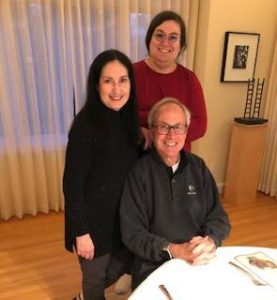
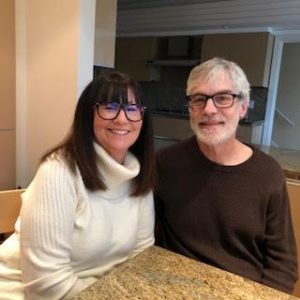
Judy and Dave
And on December 6, we leave for London to be there when our first grandchild is born. We will celebrate my 69th birthday on the 10th, and stay through until January 3, so we can enjoy Christmas and New Years with the new family. So much to celebrate!
So I reiterate, I am grateful for health and family this year. I do not take either for granted.


